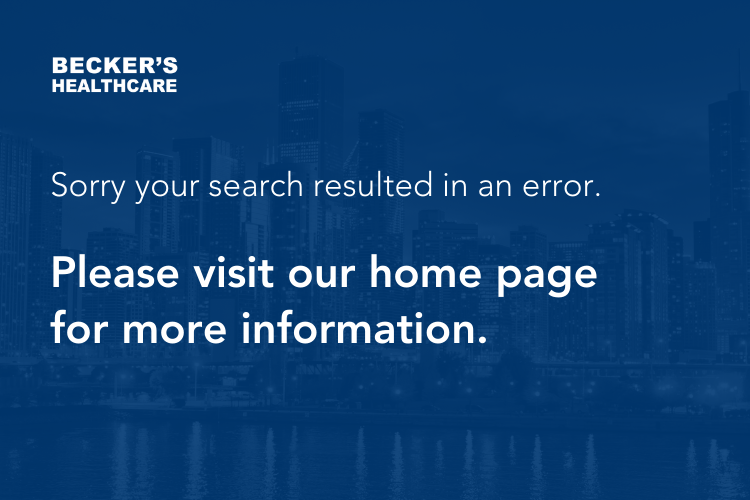Error 404 Page
Copyright © 2025 Becker's Healthcare. All Rights Reserved. Privacy Policy. Cookie Policy. Linking and Reprinting Policy.
Copyright © 2025 Becker's Healthcare. All Rights Reserved. Privacy Policy. Cookie Policy. Linking and Reprinting Policy.
Becker's Websites
Virtual Learning
Conferences
Contact Us


